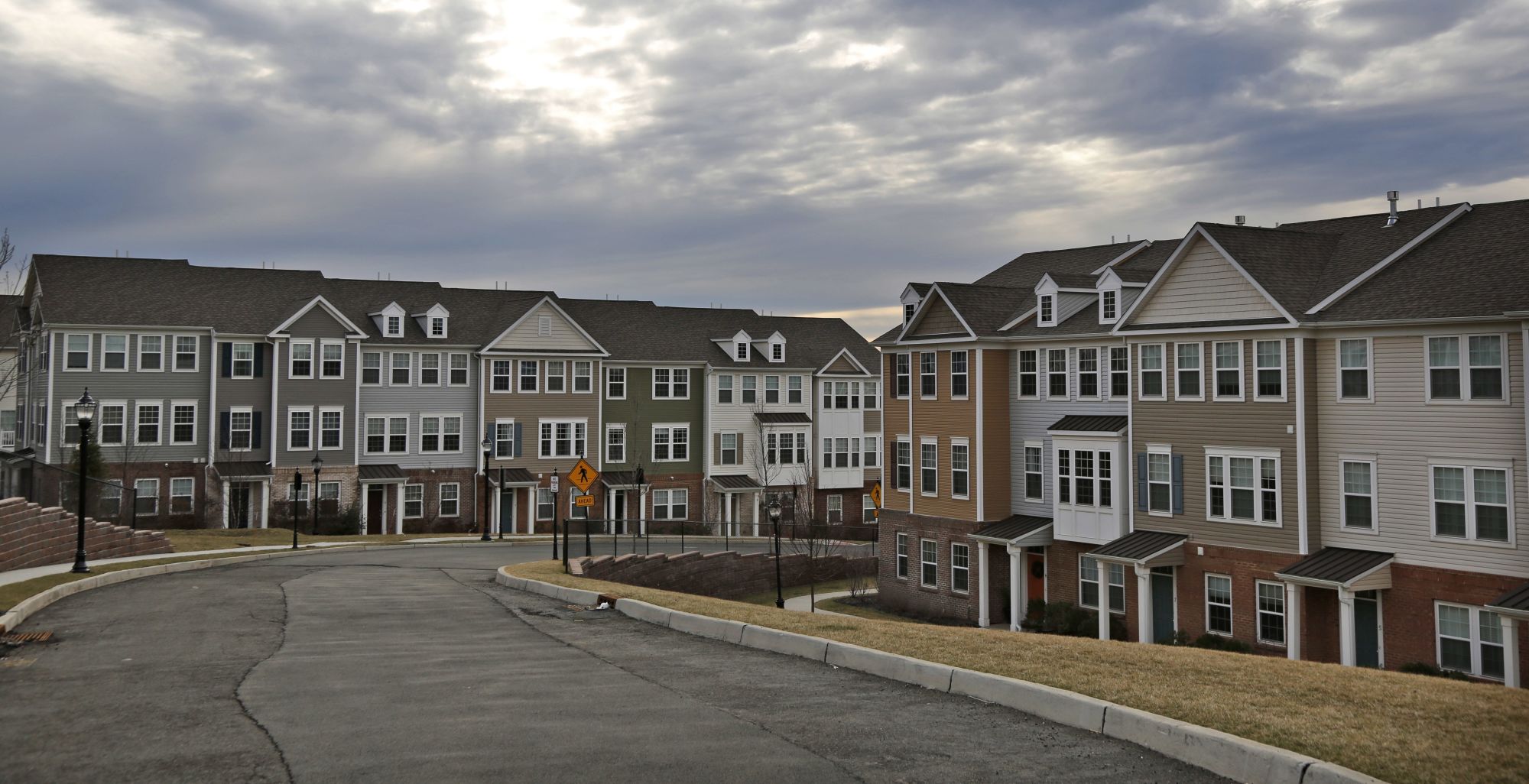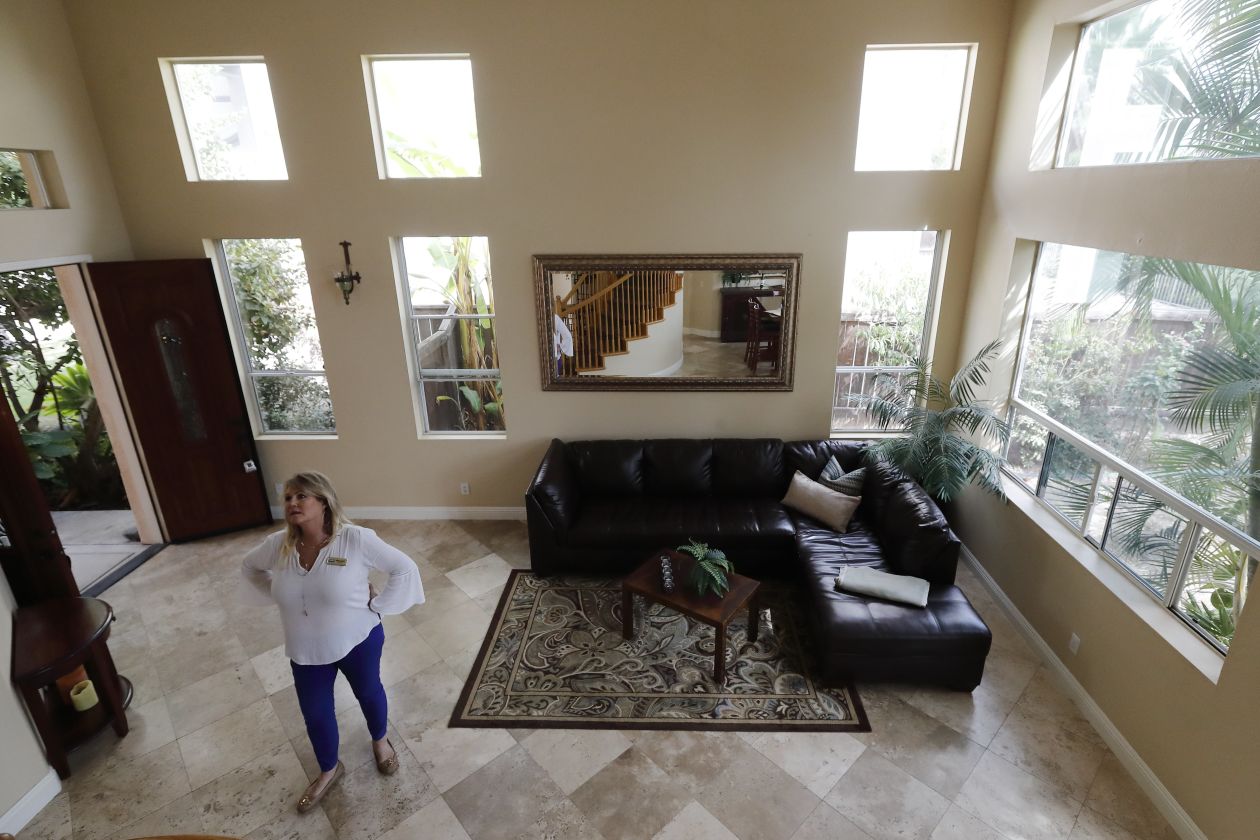How To Make Home Ownership A Reality (#GotBitcoin?)
Don’t let the housing market beat you: A guide to making the right choices when financing a new home. How To Make Home Ownership A Reality
For many, the American dream still entails owning a house and having a family.
In about four months’ time, the average person can become a homeowner and the average baby can start teething. Done wrong, both can be painful and headache-inducing.

For Those Who Don’t Pay In Cash, The Total Cost Of A New Home Depends On How It Is Financed; Choosing Wrong Can Cost You Time And Money. New Townhomes In Wood-Ridge, N.J.
But careful consideration of all your financial options can take the bite out of buying a house.
For those who don’t buy in cash, a home’s total cost is dependent on how it’s financed. It can also depend on what kind of lender you choose. Choosing wrong can cost money and time in an already-stressful situation.
“Don’t just go for the price,” says Sanjiv Das, chief executive of Caliber Home Loans, a Dallas-based direct lender. “Speed, certainty and rate are all important—not just the rate.”
As you consider lenders, experts advise doing your own research into the licensing of financial-service providers to avoid getting scammed, seeking out specialized lenders with expertise specific to your situation, and assessing your comfort level with online transactions as opposed to in-person conversations.
Especially if you are considering a smaller lender, it is critical to understand what you’ll get from the other side of the transaction. Less-regulated lenders have been making a comeback after the financial crisis, and while they often provide more-specialized lending options, they could also leave you more exposed to changing market conditions.

Careful Consideration All Your Financial Options Can Take The Bite Out Of Buying A House. Open House In Chula Vista, Calif.
Like other loans, interest rates on home-financing options will depend on your credit score. The type of mortgage that fits your situation best will hinge on what you can afford up front and each month.
Fixed-rate mortgages are still the most straightforward options. Since 2010, 30-year mortgage rates have stayed within 2 percentage points on a week-to-week basis, according to data from Freddie Mac. But even differences of that size can amount to tens of thousands of dollars over the lifetime of a loan. And while consistency is generally rewarded in fixed-rate terms of both 15 and 30 years, your personal rate will depend on whether the amount you borrow falls under a conventional loan or a jumbo loan.
Adjustable-rate mortgages, like fixed-rate mortgages, typically require a down payment of approximately 20%. While the ARMs typically have lower starting interest rates, they can change over the lifespan of the loan. In most cases, the interest rate on a five-year ARM can increase or decrease by as much as 5 percentage points, meaning a borrower paying 3.83% could end up pay nearly 9% if the rate is adjusted.
But prospective homeowners may want look beyond the traditional mortgage structures to other types of loans if they wish to pay less upfront.
Federal Housing Administration loans—and other government-insured loans—offer much lower down payments than fixed or adjustable-rate mortgages. The FHA currently requires a down payment of only 3.5%. But over time, the required payments for mortgage insurance can add up and make these loans a pricier option, as you end up paying for the price of accessibility.
From private lenders, a piggyback loan is another common way to lower the cost of a down payment. By opening separate loans on the house, you can often cut the upfront cost to 10% of the house. However, piggyback loans double the number of monthly payments you have to make and down the line can double the closing costs on the loans too.
Finding the correct mortgage requires careful consideration and often necessitates consultation with a financial professional, as each situation is largely unique. These options account for only a fraction of the options prospective homeowners have.
For example, many younger buyers have found ways to finance the purchase outside traditional methods, especially when purchasing their first house.
Shared-appreciation agreements allow home buyers to sell a share of their home’s future appreciation, a maneuver aimed at reducing the personal risk a home levies on its owner.
Other prospective homeowners have crowdfunded the money for down payments from friends and family, an option that is now being offered from startups and established players alike. Data reviewed shows that more than 26% of mortgage borrowers using FHA loans had assistance from a relative on their down payments.
However a home is financed, it’s important to remember that buying a house is often an emotional purchase, which can have a negative effect on financial prudence. Focusing on certain details of the buying process can cause you to lose track of the bigger picture of buying a home, a years-long financial commitment
Understanding your financial obligation begins with understanding the moving parts. Using a financial professional can help you minimize the pain—even if you are only cutting your teeth with the home buying process.
Updated: 10-1-2020
As Pandemic Boosts Suburban-Home Demand, Startup Sells A New Ownership Model
Pacaso is using a vacation model to sell ownership in weekend homes.
Americans feeling trapped at home during the pandemic want more space. The creators of a new startup think they can deliver it with a fresh spin on the timeshare business.
Pacaso, a venture between two Zillow Group Inc. alumni, is using a vacation model to sell ownership in weekend homes.
Similar to a traditional timeshare, Pacaso will give buyers the right to use the house a certain number of weeks a year. But where timeshares typically cluster in holiday hot spots like beach towns or mountain resorts, many of Pacaso’s homes will be located in suburban and other residential neighborhoods.
“This is not just for Napa Valley, Santa Barbara or fancy vacation destinations,” said Spencer Rascoff, Zillow Group’s former chief executive and a Pacaso co-founder. “This is for that lake outside of Detroit, where maybe you’ve had your eye on getting a little lodge.”
The company is looking in places like Austin, Texas, and Scottsdale, Ariz., said co-founder and CEO Austin Allison.
Pacaso is launching on Thursday with four homes, but the company aims to operate in 25 U.S. markets and expects to ramp up with hundreds of homes a year from now.
The pandemic is changing where and how people want to live during a period of work from home and social distancing—and how businesses are looking to cash in on the trend. The company has raised $17 million in venture funding and counts former Starbucks Corp. CEO Howard Schultz and Amazon.com Inc. executive Jeff Wilke among its investors.
With Americans spending more time at home, some buyers are leaving crowded cities for the suburbs or rural areas. Others want to keep their urban address but want the option of escaping from time to time with a second house.
Mortgage-rate locks for second-home purchases have nearly doubled since last summer, according to a September study from the American Enterprise Institute, indicating a surge in second-home purchases.
Founders of Pacaso—the name is a nod to artist Pablo Picasso—said they came up with the idea before the pandemic but adjusted their plans during the Covid-19 outbreak.
They would specialize in houses within a two-hour drive from a main residence that owners could visit frequently. Housing inventory has been especially low in hot second-home markets, making houses harder to find and afford.
Here is how it works: Home buyers find a home on the market they are interested in partially owning, or browse through Pacaso listings. If Pacaso views a home as a good investment, it buys the house and sells between 12.5% and 50% to the new owner; then the company tries to sell the remaining shares. Pacaso also manages the homes.
The company enables buyers to finance as much as 50% of their share through a program with First Republic Bank. Unlike most timeshares, Pacaso’s buyers actually obtain partial ownership in the property.
Pacaso aims to profit by charging a markup on the individual ownership shares of about 10% to 15% and by collecting an annual maintenance fee equal to 1% of the purchase price.
The timeshare model has historically been tough to make a financial success—for both operator and customer. The units can be notoriously difficult to sell, with buyers often dumping them for pennies on the dollar just to escape the annual fees. Timeshare values usually appreciate at a slower rate than fully owned homes, and Pacaso owners could suffer a similar fate. Home buyers might also compete for prime weeks of the year, like summer months and holidays, leaving some inevitably disappointed.
Related Articles:
Home Sellers & Realtors Now Use Spycams To Gather Intel On Prospective Buyers
The U.S. Housing Boom Is Coming To An End, Starting In Dallas (#GotBitcoin?)
Home Prices Continue To Lose Momentum (#GotBitcoin?)
Freddie Mac Joins Rental-Home Boom (#GotBitcoin?)
Retreat of Smaller Lenders Adds to Pressure on Housing (#GotBitcoin?)
OK, Computer: How Much Is My House Worth? (#GotBitcoin?)
Borrowers Are Tapping Their Homes for Cash, Even As Rates Rise (#GotBitcoin?)
‘I Can Be the Bank’: Individual Investors Buy Busted Mortgages (#GotBitcoin?)
Why The Home May Be The Assisted-Living Facility of The Future (#GotBitcoin?)
Your questions and comments are greatly appreciated.
Monty H. & Carolyn A.
Go back
Leave a Reply
You must be logged in to post a comment.